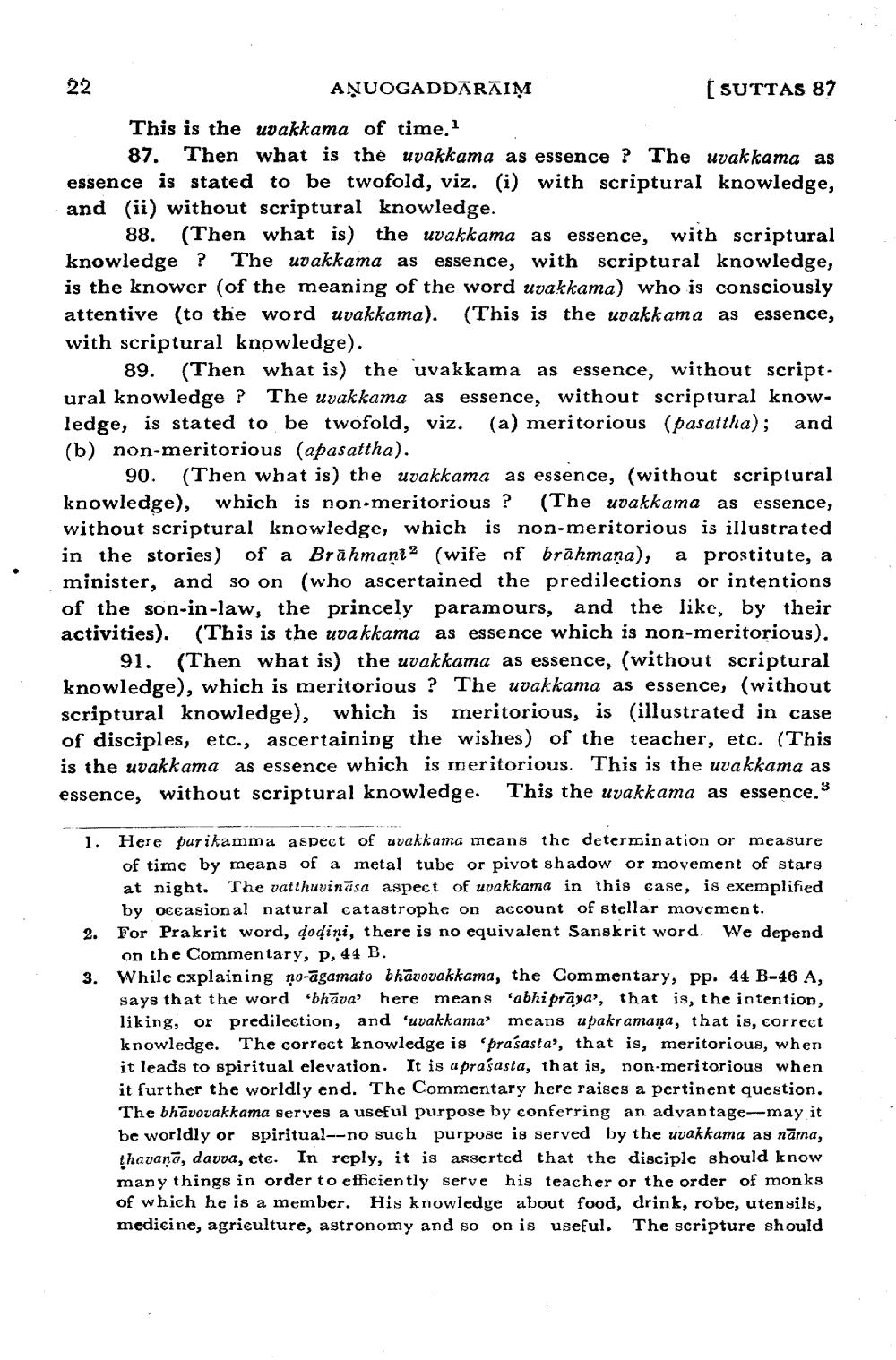________________
22
AṆUOGADDĀRAIṀ
This is the uvakkama of time.1
87. Then what is the uvakkama as essence? The uvakkama as essence is stated to be twofold, viz. (i) with scriptural knowledge, and (ii) without scriptural knowledge.
88. (Then what is) the uvakkama as essence, with scriptural knowledge ? The uvakkama as essence, with scriptural knowledge, is the knower (of the meaning of the word uvakkama) who is consciously attentive (to the word uvakkama). (This is the uvakkama as essence, with scriptural knowledge).
[SUTTAS 87
89. (Then what is) the uvakkama as essence, without scriptural knowledge? The uvakkama as essence, without scriptural knowledge, is stated to be twofold, viz. (a) meritorious (pasattha); and (b) non-meritorious (apasattha).
90. (Then what is) the uvakkama as essence, (without scriptural knowledge), which is non-meritorious? (The uvakkama as essence, without scriptural knowledge, which is non-meritorious is illustrated in the stories) of a Brahmant2 (wife of brahmana), a prostitute, a minister, and so on (who ascertained the predilections or intentions of the son-in-law, the princely paramours, and the like, by their activities). (This is the uvakkama as essence which is non-meritorious). (Then what is) the uvakkama as essence, (without scriptural knowledge), which is meritorious? The uvakkama as essence, (without scriptural knowledge), which is meritorious, is (illustrated in case of disciples, etc., ascertaining the wishes) of the teacher, etc. (This is the uvakkama as essence which is meritorious. This is the uvakkama as essence, without scriptural knowledge. This the uvakkama as essence."
91.
3
2.
1. Here parikamma aspect of uvakkama means the determination or measure of time by means of a metal tube or pivot shadow or movement of stars at night. The vatthuvināsa aspect of uvakkama in this case, is exemplified by occasional natural catastrophe on account of stellar movement. For Prakrit word, dodini, there is no equivalent Sanskrit word. on the Commentary, p, 44 B.
We depend
3.
While explaining no-agamato bhāvovakkama, the Commentary, pp. 44 B-46 A, says that the word "bhava' here means 'abhipraya', that is, the intention, liking, or predilection, and 'uvakkama' means upakramana, that is, correct knowledge. The correct knowledge is 'prasasta', that is, meritorious, when it leads to spiritual elevation. It is aprasasta, that is, non-meritorious when it further the worldly end. The Commentary here raises a pertinent question. The bhavovakkama serves a useful purpose by conferring an advantage-may it be worldly or spiritual--no such purpose is served by the uvakkama as nāma, thavana, davva, etc. In reply, it is asserted that the disciple should know many things in order to efficiently serve his teacher or the order of monks of which he is a member. His knowledge about food, drink, robe, utensils, medicine, agriculture, astronomy and so on is useful. The scripture should




